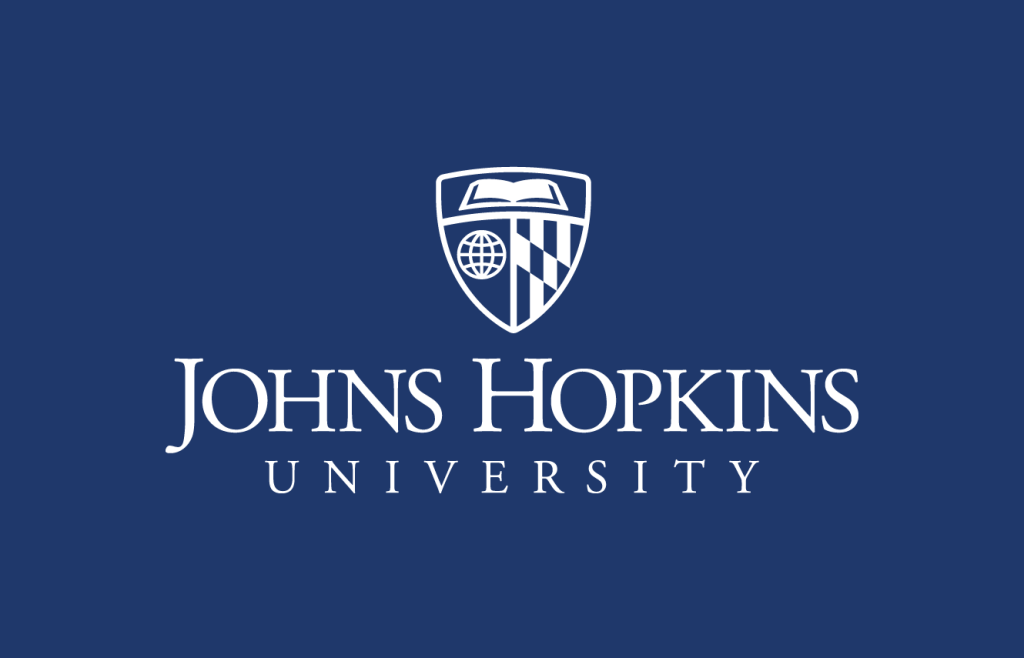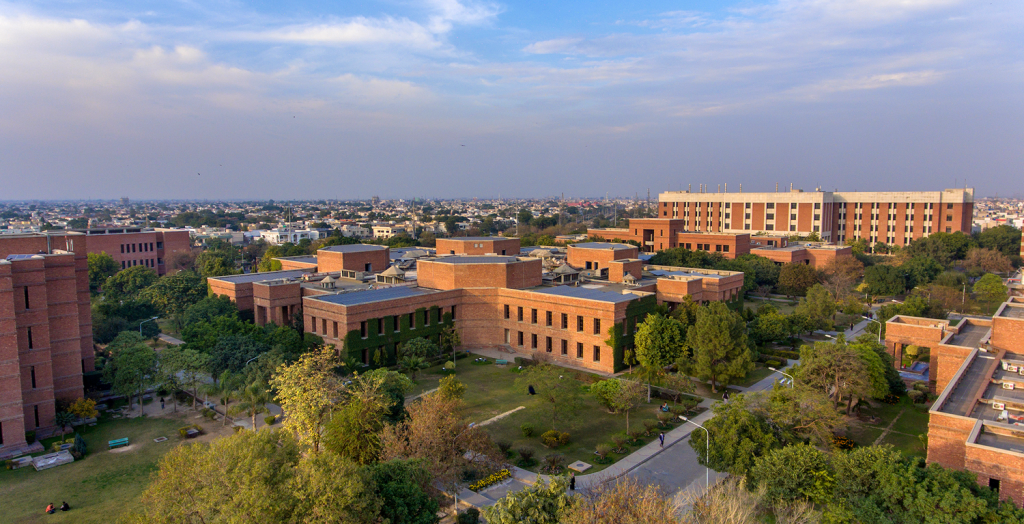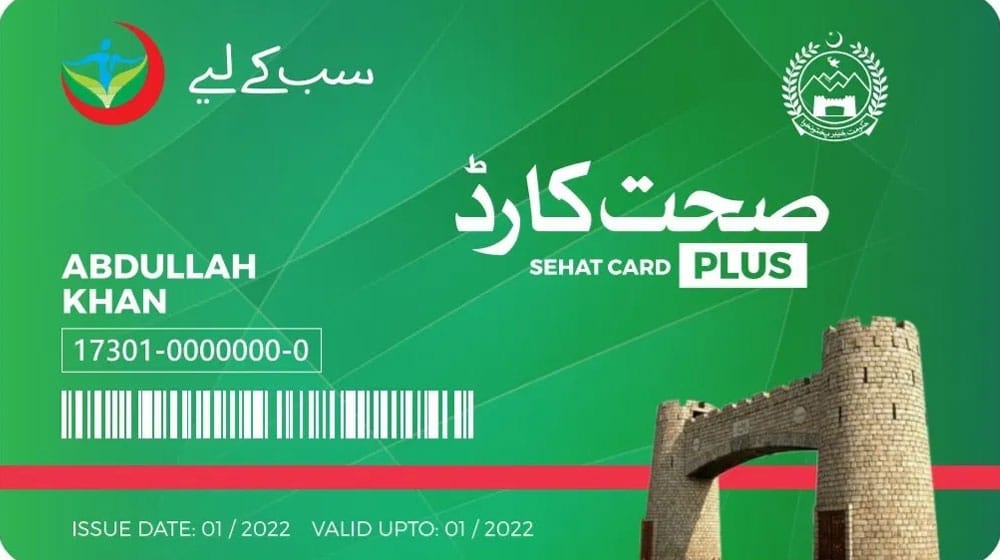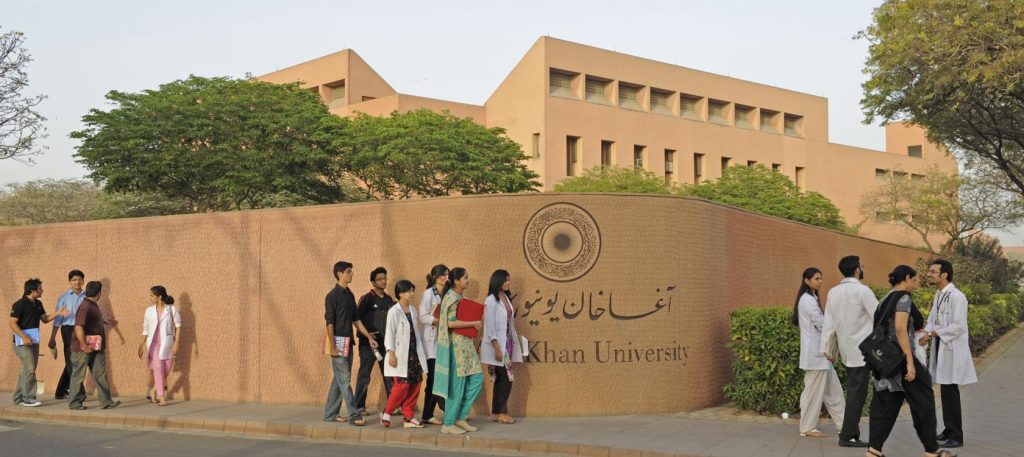Partnerships
Partnerships & Programmes
Johns Hopkins International Collaboration
Shalamar Institute of Health Sciences (SIHS) has always been cognizant of its responsibility as a community leader in healthcare. To further serve the community’s women, SIHS collaborated with the Shahid Hussain Foundation and Johns Hopkins International (JHI) to establish a women’s health center. The mission of the Shalamar Health Center for Women is to address women’s needs personally and conveniently. Through the integration of services and a commitment to improved health and wellness, the Center will offer an integrated, holistic care plan for women.

This would be accomplished by using a coordinating center to provide comprehensive medical services via guided care plans. The Shalamar Health Center for Women will be facilitated by the current consultants and their respective departments. The center aims to be a one-stop shop for services, with multi-disciplinary teams on hand.
The development of the women’s health center will occur in different phases. A team of experts from JHI came in for the first phase to conduct a preliminary assessment of the Shalamar Hospital and its affiliated schools to gain a better grasp of the situation on the ground and conduct a functional analysis of the departments to identify gaps. The team performed a series of interviews with various department faculty and hospital personnel and all supporting departments to obtain a good understanding of their workplace practices. The discussion revolved around the needs of the women in the community and the requirements for establishing a women’s health centre at Shalamar Hospital.
The second leg of the journey entails sending groups of aspiring medical personnel to the Sibley Memorial and John Hopkins in Baltimore for clinical observerships in order to learn about their standard practices.
We also hope to establish an open channel of communication with JHI through various modalities of consultation so that they can assist us in developing our personnel’s capacity, provide a roadmap to improve clinical services at Shalamar Hospital and collaborate with us on future research initiatives.
Centre of Excellence
Research has always been a cornerstone of Shalamar Institute of Health Sciences’ innovation strategy. The Centre of Excellence (COE) framework was established to instil a thirst for research among the SIHS community. Its goal is to encourage forward-thinking researchers to develop novel answers to today’s healthcare issues.
The COE will help standardize best practices in the health sector and incorporate them into its service delivery system, continuously improving service delivery standards.
The core goals of the COE is to :
- Use the vast intellectual pool at hand to develop and disseminate knowledge by promoting a research environment among students and professors
- Recognize the potential for improving patient treatment and handling, and take necessary steps to ensure excellent healthcare services.
- Develop an enhanced curriculum that includes methodologies aligned with current population needs and evolving health industry trends.
Through COE, we wish to introduce a culture of high-quality research that is the bedrock of an outstanding institution.

Memorandum of Understanding with LUMS
While theory has its advantages in learning, it does not fulfil practical needs the way that genuine hands-on work experience does. To tackle this gap, Shalamar Institute of Health Sciences has signed an MOU with Lahore University of Management Sciences (LUMS) to create an internship program to help cultivate and foster future healthcare leaders. This collaboration has been to provide young and upcoming students with the opportunity to apply their academic knowledge to real-world initiatives in a working hospital to improve patient care. Mentoring has been an essential part of the program to polish the interns into successful professionals.
The hospital’s senior leadership supported these interns in their endeavours and played an important part in handing over key projects that were beneficial for the operations of the hospital. Furthermore, the interns were allowed autonomy to execute these projects while being guided so that they might acquire confidence in their talents. Shalamar Institute of Health Sciences has always aimed to make a positive difference in society to improve the region’s healthcare sector.
Sehat Sahulat Card Initiative

The Sehat Sahulat card program is an ambitious endeavour by the government to provide universal health coverage to all in Pakistan. As the leading healthcare provider in the region, Shalamar Hospital was quick to join the empaneled hospitals, as providing accessible health care is one of our top priorities.
The great thing about the Sehat Sahulat Programme is that it is cashless and all one needs is their CNIC with them to avail it. The services are covered under two distinct benefit packages; the priority / tertiary care benefit package covers all significant high-cost critical treatments like cancer management, cardiology, accidents, ventilator support, burns, etc. At the same time, the secondary care benefit package covers all the remaining medical and surgical treatments, including abdominal surgeries, medical conditions, deliveries / C-sections, etc.
Shalamar Hospital came on board with the initiative in November, and since then, it has been a steep learning curve for the administration, doctors, and patients and their families. Despite the challenges, our team rose to the occasion. In coordination with the doctors and the marketing, the Office of the Deputy Medical Director has strived hard to remain on top of all program-related concerns. This includes resolving any complications that emerged with forms relating to the Sehat card and offering training to both doctors and receptionists. A health facilitation officer from the state life insurance company is also on hand to help patients comprehend the ins and outs of the Sehat card program’s offerings and deal with the patients’ queries.
Shalamar Hospital, apart from others, has incorporated all of its specialties into the Sehat card program as we are committed to providing maximum relief to the patients coming in from the surrounding area. As the different aspects of the Sehat card program develop and evolve, the hospital is ready to adapt. There may be many trials and tribulations ahead, but we are ready to confront them in the pursuit of providing high-quality care to all strata of society.
Agha Khan University Training

Research is the foundation upon which great institutions are built and grow, and conducting it accurately is crucial to achieving this. To tackle this, Shalamar Institute of Health Sciences (SIHS), in the fall of 2021, conducted a training workshop on Research Methodology. The two-day training workshop was conducted on 29th and 30th September 2021, with over 30 participants from our different departments, including Shalamar Medical and Dental College (SMDC), Shalamar Nursing College (SNC), Shalamar School of Allied Health Sciences (SSAHS), and Shalamar Hospital.
We were joined by a team from Agha Khan University who talked about elements of research design. The team was comprised of:
- Dr. Jai Das – Assistant Professor at the Department of Women and Child Health at AKU
- Dr. Nadeem Zuberi – Associate Professor Obstetrics and Gynaecology
- Dr. Zahra Hoodbhoy – Assistant Professor (Research) at the Department of Paediatrics and Child
- Dr. Zohra Lassi
- Ms. Zahra Feroz – Manager Research at the Institute of Global Health and Development at Agha University
- Ms. Shamsa Panjwani
What was really interesting about the design of this workshop was the way it enabled a mutual exchange of ideas. Not only did the participants engage in several group activities, but they developed a sense of camaraderie with the trainers, asking questions back and forth, enthusiastically giving their input, and helping their peers out.
The workshop covered research methods and various components of a research paper, such as the literature review, the importance of hypothesis determination, and the framing of research questions. Of course, a research technique methodology would be incomplete without a discussion of research ethics and research design elements.
Our participants and the AKU moderators continued on an enthusiastic path, engaging in various dialogues, group activities, and sessions to harness their research skills, focusing specifically on data collection, analysis, and interpretation.
There was also a guest appearance by Dr. Faisal Bari, Dean of the School of Education at Lahore University of Management Sciences. Dr. Bari’s speech was a pertinent reminder of the relevance and centrality of research in today’s data-driven age. In his talk, he also discussed in depth various research models institutions across the country have taken up and the way forward that we, at SIHS, can create a culture of research.
We were also joined by Mr. Shahid Hussain, Chairman Shahid Hussain Foundation, at the opening ceremony. Mr. Shahid encouraged the participants to actively engage in research projects and help create a conducive environment where the spirit and spark of research could be instilled within the student body from day one. Prof. Zahid, Principal of SMDC, also joined the session for the closing ceremony. He also appreciated the enthusiasm and commitment to learning the participants reflected.
